The first transmission of intelligible speech over electrical wires took place on 10 March 1876. Inventor Alexander Graham Bell called out to his assistant Thomas Watson, “Mr. Watson, come here! I want to see you.” This transmission took place in their attic laboratory located in a near here at 5 Exeter Place. A pioneer in the field of telecommunications, Alexander Graham Bell was born in 1847 in Edinburgh, Scotland. He moved to Ontario, and then to the United States, settling in Boston, before beginning his career as an inventor.
Electric
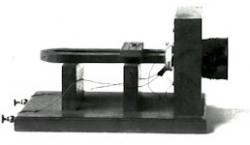
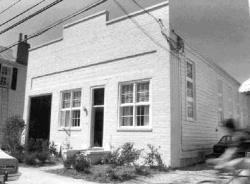
The United States Electric Illuminating Company of Charleston started up South Carolina's first central station for incandescent lighting in October 1882 -- only one month after Thomas Edison opened his famous Pearl Street plant in New York City. In the following years, the company's parent firm was a major force in the growing electrical industry.

This was a pioneering venture in mainline railroad electrification. It established single-phase alternating current as a technical and economical alternative to direct current. This concept exerted considerable influence over subsequent systems both in the United States and abroad. The major components of the system were developed by the engineering staffs of the New York, New Haven & Hartford Railroad and the Westinghouse Electric and Manufacturing Company of East Pittsburgh, Pennsylvania.
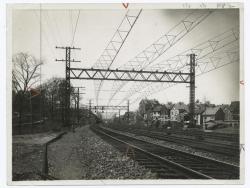
This was a pioneering venture in mainline railroad electrification. It established single-phase alternating current as a technical and economical alternative to direct current. This concept exerted considerable influence over subsequent systems both in the United States and abroad. The major…
Read More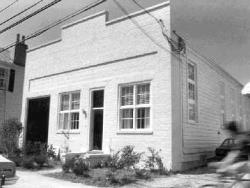
The United States Electric Illuminating Company of Charleston started up South Carolina's first central station for incandescent lighting in October 1882 -- only one month after Thomas Edison opened his famous Pearl Street plant in New York City. In the following years, the company's parent firm…
Read More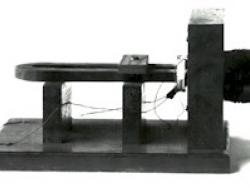
The first transmission of intelligible speech over electrical wires took place on 10 March 1876. Inventor Alexander Graham Bell called out to his assistant Thomas Watson, “Mr. Watson, come here! I want to see you.” This transmission took place in their attic laboratory located in a near here at…
Read More

